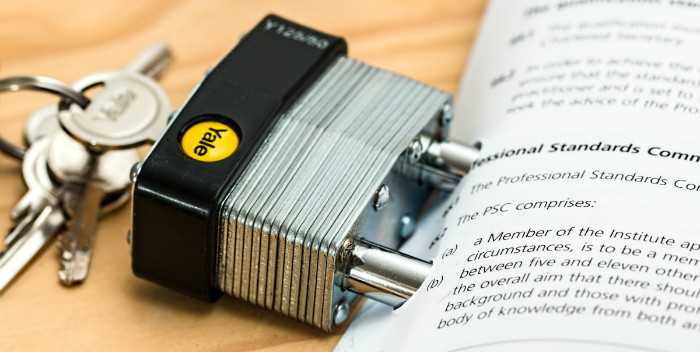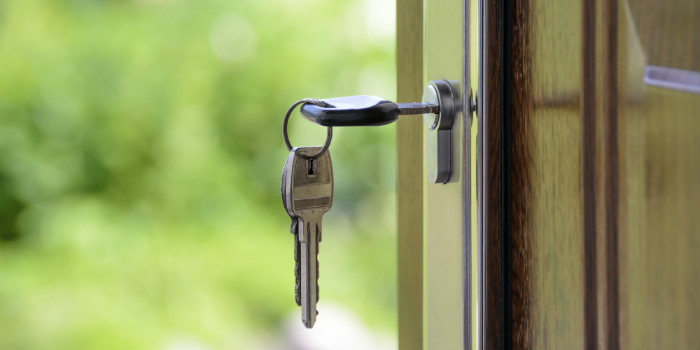It’s often said that buying a house is one of the most stressful things you can do in life. From worrying about things going wrong, to organising everything that needs doing, it certainly can be a trying time.
Conveyancing is simply the process of legally transferring the ownership of a property from one person to another. It ensures that all the necessary paperwork is completed to help avoid any disputes in the future.
It’s not only part of the legal process, but it’s also designed to protect all parties involved. As a buyer, you want to make sure you don’t get a nasty surprise after you have moved in.
Part of the issue why buying a house is so stressful is that a lot of the process is out of your control. Once you’ve had an offer accepted, there’s only so much you can do to help things along.
However, one thing you can do is make sure you understand the conveyancing process when buying a house. By doing so, you can be ready for anything that might come up and will have a better idea on how far through the process you actually are.
Buying A Property? FREE Step-By-Step Platform
The Conveyancing Process When Buying
So, what exactly do you get for your money, and what is the conveyancing process when buying a house? Typically, the steps you’ll go through look something like this (we’ve given rough timeframes for each, though several steps can happen simultaneously)…

1. Enquiries (2-4 weeks)
Once you have instructed your conveyancer (we’ll assume from now on that you’re using a solicitor), they will request a draft contract and some other documents from the sellers’ solicitor. Once these documents have been received, your solicitor will carefully check them to ensure everything is in order.
If your solicitor wants to clarify anything or requires more information from your sellers, they will raise what are known as ‘enquiries’. These are simply questions or requests for more information.
While this is ongoing, you’ll be asked to check a range of forms the seller has completed. These will include a list of the fixtures and fittings included with the sale and the property information form which will disclose certain details about the property. If there is anything that you’re not sure about, you should tell your solicitor immediately.
2. Searches (3-6 weeks)
Your solicitor should be looking to conduct searches at the earliest opportunities, as some can take several weeks to come back. We found that it will depend strongly on the local authorities how quickly the searches are back.
When we bought our current home, one of the searches, the main one, took several weeks to come back. The same search only took one week when we bought our previous home.
This shows how important it is that your solicitor conducts the searches as soon as possible. Not all searches are needed. We, for example, told our solicitor not to bother with the flood risk survey.
Because the location we were looking to buy in had a high flood risk, we did the search ourselves before we looked at a house to ensure it wasn’t in an area with flood risk. This is one way to keep the costs down, because each search the solicitor does costs money.
But be careful when deciding which searches not to do, as searches are basically your safety net to ensure you know everything there is to know about the property and the local area.
There are a range of different searches that can be done, and your solicitor should recommend which ones are necessary for your property.
The most common searches include a local authority search which checks for plans and issues in the surrounding area, property flood risk reports, water authority searches to check how the property is connected to the local water system, and an environmental search which checks for any potential hazards around the property.
The cost of these searches vary from a few pounds, up to a few hundred pounds. You should make sure you know whether your solicitor has included the costs of searches in their quote before you instruct them.
3. Finances (2-4 weeks)
You’ll want to make sure you have your finances in place as soon as possible – don’t wait for your searches to come back.
If you are a cash buyer, this means making sure the money is somewhere you can easily access it on the day. If you are using a mortgage, make sure the mortgage has been fully approved and that your solicitor has been sent a copy of the offer.
You’ll need to make sure you comply with any conditions of the mortgage such as allowing them to conduct a survey or valuation (usually at your own cost).
Your solicitor will work closely with you to ensure your mortgage is ready to proceed as soon as the contract exchange date has been set.
4. Signing Contracts (1-3 days)

This is when things start to get exciting! The signing of the contract is a big step towards becoming the legal owner of the property. However, it doesn’t yet commit you to going ahead with the purchase. For this reason, you should sign the contract as soon as possible.
If you are finding it difficult to get to this stage, you may want to consider taking out a home buyer protection insurance policy to cover you if things go wrong.
Before signing the contract, the solicitor will make sure that all enquiries have been answered satisfactorily, you’re happy with the information that has been received from the seller, a completion date has been agreed by all parties, and that all your finances are in order.
5. Exchanging Contracts (1-3 days)
Once all parties are ready to confirm the transaction, the exchange of contracts can go ahead. Your solicitor will do this for you, usually by reading out the contract on a recorded phone call with the seller’s solicitor.
You should be aware that once the contracts have been exchanged, your agreement to purchase the property is legally binding. Therefore, once contracts are exchanged, you cannot withdraw from the purchase without penalty.
The penalties for withdrawing after this stage include losing your deposit (and potentially more) or being sued by the seller.
6. Before Completion (1-3 weeks)
The exact amount of time between exchanging contracts and the day of completion is for you and the seller to decide (along with anyone else in the chain). It’s possible, although not usually recommended, to exchange contracts and complete on the same day.
Typically though, there will be at least a few days gap between exchange and completion. By not trying to do it all on the same day, you don’t risk being out of pocket if the sale falls through at the last minute when you already have the removal men loading up the van.
Whatever gap you have between exchange and completion, this is time for you to start packing and preparing for the move. If you have pets, don’t forget to check our guide on what to do with pets on moving day.
If you want to make your final days in your old home as stress-free as possible, you might want to start packing earlier. We always start once we have an offer accepted and the survey has come back with no real issues.
What we do is pack the things that aren’t essential, and we can live without for at least 4 months. This is mostly ornaments, pictures, some kitchenware, books and similar things. Packing clothes is also something you can start early.
We moved into our current home at the end of June; towards the end of April we packed most of our winter clothes.
Of course, it does mean that you need some space where you can put all these boxes and suitcases. A guest room or the garage are an ideal place. But it’s worth it, because you can reduce the stress nearer to completion day.
Before completion, your solicitor will also lodge an interest in the property, which means that the deeds to the property will be frozen for 30 working days. This gives you time to pay the seller for the property and lodge your application to the Land Registry to transfer the deeds into your name.
7. On Completion Day (1 day – hopefully!)

On the completion day, you’ll be eagerly awaiting a call from your solicitor to confirm that the purchase has gone through successfully. It will feel strange as you’ll probably need to start loading up the removal van before you receive the call.
Your solicitor will usually call you somewhere around lunchtime. This will be once the seller’s solicitor has received all the monies that were due. At this point, the seller should vacate the property and leave the keys at an agreed place (usually their estate agents) for you to collect. Congratulations, the house is now officially yours!
When we moved to our current home, we moved from one county to another. We were already halfway to our new home when we got the confirmation that our sales had gone through.
But we had to wait another hour to hear from our solicitor to say that our purchase had gone through as well. This was a very stressful time, because for this hour we were homeless.
All you can do in a situation like this is to stay calm, and trust in your solicitor. Completion day can be hectic, but it’s very rare that something goes wrong on this day.
8. After Completion (1-2 weeks)
Just because you’ve moved into the property, doesn’t mean all the work has been completed. Your solicitor will need to tie up a few loose ends, including: paying stamp duty on your behalf, sending a copy of your deeds to your mortgage lender, and issuing you a final bill for their services.
Your solicitor may also ask you to visit them to collect the legal paperwork they still hold for your transaction.
Other than that, all you need to worry about is unpacking and getting set-up in your new home!
DYI-conveyancing isn’t for the faint hearted
Usually, you would appoint a solicitor, a conveyancer or a property lawyer to conduct the conveyancing process when buying a house. These are people trained in property law and know exactly what to do and what to look out for.
However, it is technically possible to do the conveyancing process yourself, but be prepared for lots of paperwork and legal terms to get your head around. If you’re buying with a mortgage, your lender may require you to use one of their approved conveyancers, making DIY-conveyancing impossible.
If you need to find a qualified conveyancing solicitor, you can use our handy tool to get quick conveyancing quotes.
What can delay the conveyancing process?
The average conveyancing process in the UK takes around 3 -4 months – but it can be shorter or longer depending on the circumstances. Some of the factors that can delay the conveyancing process are:
- Problems with the title deeds or leasehold agreements
- Issues with the property survey or valuation
- Discrepancies or errors in the contract or supporting documents
- Queries or negotiations between the parties or their solicitors
- Delays in obtaining a mortgage offer or proof of funds
- Difficulties in arranging buildings insurance or removals
- Unexpected events such as illness, bereavement or lockdowns.
How to speed up the conveyancing process in the UK
If you want to speed up the conveyancing process in the UK, it is advisable to:
- Choose a reliable and experienced conveyancing solicitor
- Compare conveyancing quotes and check what is included in the fees
- Provide proof of identity and funds as soon as possible
- Complete and return any forms or documents promptly
- Respond to any enquiries or requests quickly and clearly
- Communicate regularly with your solicitor and estate agent
- Be flexible and cooperative with the other party
- Avoid making any major changes to your plans or finances.
So, there we have it, some practical tips based on our experience to help you navigate your way through the conveyancing process when buying a property in the UK!





